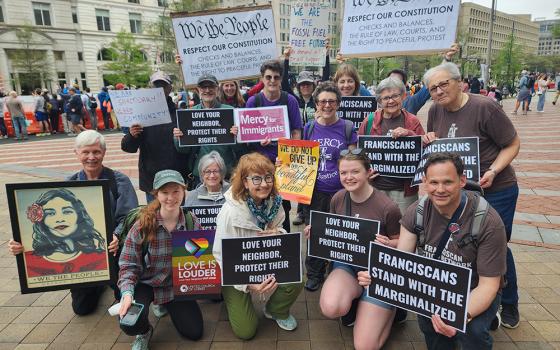The decision by U.S. District Court Judge Susan Bolton to block key sections of the new anti-immigrant law in Arizona is good news, but it is not great news. This is the first step in a long legal struggle that will likely end at the U.S. Supreme Court. In the war between human dignity and nativism that is currently engulfing our nation, yesterday’s court ruling had more the flavor of Dunkirk than of D-Day. It was a deliverance, nothing more.
Judge Bolton ruled that the provision of the new law requiring law enforcement officers to check on a person’s immigration status when detaining them for other reasons, as well as the provision giving those same officers permission to arrest those they suspect of being in the country illegally, without any warrant, were both unconstitutional. She also ruled against the provision that required legal immigrants to carry their papers. She allowed other less objectionable parts of the new law to take effect as planned.
But, the ruling held that the overturned provisions could not withstand a prima facie challenge, and the relevant legal requirements to sustain the challenge may not have been met in this case, as Mark Levin pointed out at National Review. Judge Bolton was satisfied, but a higher court might rule differently. A prima facie challenge cannot consider hypothetical constitutional infringements. Such a challenge must be sustained only if the judge concludes that there is no way a given law could be implemented without infringing on someone’s constitutional rights. It is undoubtedly the case that the requirement that legal immigrants produce their “papers” is unconstitutional in any conceivable implementation, but it is much less clear that the burden on police officers is equally incapable of some conceivable method of constitutional implementation. N.B. It was the burden on the police, not the undocumented workers, that the court ruled unconstitutional in two of the key provisions struck down.
It is difficult to predict how the politics of the issue will be affected by the ruling. The nativists will be more fired up and their hold on the GOP will likely grow between now and November’s midterm elections. Already, once courageous Republican Senators like John McCain have been turned into cowards on the issue of immigration reform because of the strength of nativist sentiment in the GOP base. But, will the ruling, especially the fragility of the ruling, motivate those of us who support immigrant rights in a like manner? That remains to be seen. The most likely outcome is that the lame duck Congress will convene after the election and possibly pass immigration reform. To paraphrase last Sunday’s first reading, in which Abraham asked the Lord, if there are only 10 blameless men in Sodom, would he spare the city, are there not 10 –or even four – courageous men and women in the ranks of the Republican senators to pass immigration reform? Will some in the GOP ranks recognize that if they continue in their obstinacy on this issue, they risk losing the fastest-growing demographic in the electorate for decades? There is a measure of self-interest, at least enlightened self-interest, in doing so.
For the Church, the task is clear. We must raise our voices loudly and consistently on behalf of the human dignity of undocumented workers and their families. We must object, again and again, to our current law which separates wives from their husbands and children from their parents. We must denounce as an example of the “culture of death” a policy that induces immigrants to take risky treks through the desert in order to secure a livelihood. It makes no moral sense for the Church to invest so much effort into fighting provisions of the health care law which the bishops thought might, repeat might, result in some expansion of abortion, unless they are willing to invest a similar amount of effort in the cause of defending our brothers and sisters whose only crime was to have been born poor and south of the border.
If this case does reach the Supreme Court, one thing is certain. The case for diversity on the court will prove its merit. Chief Justice John Roberts is not likely to be asked for his papers should he wander over the speed limit en route to a speech in Phoenix, but Justice Sonia Sotomayor might. I would love to be a fly on the wall when the Court begins its deliberations in conference, and Justice Breyer, known for his wit, asks Justice Sotomayor if she has her papers.
So, we can all breathe a sigh of relief that justice was done yesterday, but it is way too soon to uncork the champagne. It is time to get to work.




